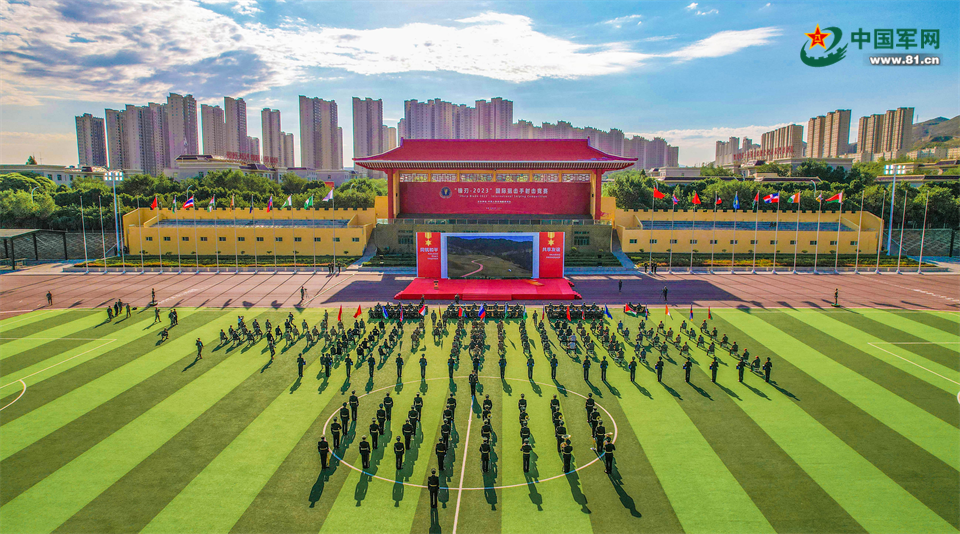
"Sharp Blade-2023" International Sniper Competition concludes at a Chinese PAP Force training base in Urumqi, Xinjiang, on July 15. (Photo by Chen Wang)
URUMQI, July 17 -- The "Sharp Blade-2023" International Sniper Competition concluded in a training base of the Chinese People's Armed Police (PAP) Force in Urumqi, Xinjiang Uygur Autonomous Region, on July 15. This is the third time that the Chinese PAP force has organized this series of events.
During the three-day competition, nearly 40 sniper teams from 18 countries, including Belarus, Pakistan, Kuwait, South Africa, and the Dominica Republic, together with seven sniper teams from the Chinese military and police units, competed on 12 subjects.
The competition adhered to the implementation principle of combining competitive contests with real-combat requirements in an innovative way.
"We have designed contests that simulate real-combat circumstances, during which participants would feel like on an actual battlefield," said Meng Qingfeng, chief referee of the competition.
For example, in the water sniper contest that started on April 14, participating teams were required to board suspended speedboats and shoot at targets floating 200 meters away. Meng explained that overcoming the shaking of both the hull and the target while identifying the exact moment for precise sniping is the primary testing point of this subject. "Water sniper contest is an innovative and quite difficult one in this year's competition," said Meng.
And in the comprehensive combat contest, the participating teams should approach the designated positions discreetly, each carrying two sniper rifles and necessary equipment when moving along designated route. They were assigned the tasks such as infiltrating enemy lines, rescuing hostages by force, tracking targets, controlling and guarding positions, and counterattacking while evacuating at the same time. Each team must fire a total of nine rifle bullets and 12 pistol bullets within a time limit of 20 minutes during the whole process.
Huo Junli, the leader of the Chinese naval team, stated that some of the 12 subjects in the competition were not so familiar to them in normal training. Competing in this event and and exchanging ideas with Chinese and international counterparts was a valuable opportunity for them to enhance their capabilities.
The integration of Chinese cultural elements was one of the highlights in this competition.
As in the close-quarters precision sniper contest, participants who successfully execute specific technical movements were awarded the "Xuanyuan Sword". "The Xuanyuan Sword is one of the top ten renowned swords in ancient China. The presentation of swords to heroes symbolizes awarding honor to and admiring the achievements of the snipers, which enables me to appreciate Chinese culture," stated a team member from Pakistan.
The entire process of the competition has been visible, fair and transparent.
Sirawit Khaengkhan, director of the Special Tasks Department of the Royal Thai Armed Forces and a member of the Competition Arbitration Committee, highly praised China's intelligent refereeing system. "It possesses functions such as information input, intelligent scoring, and video monitoring. With referees placed in 68 sniper positions and 110 high-definition cameras covering six competition venues, the system enhances the speed, accuracy, fairness, and impartiality of refereeing," he said.









